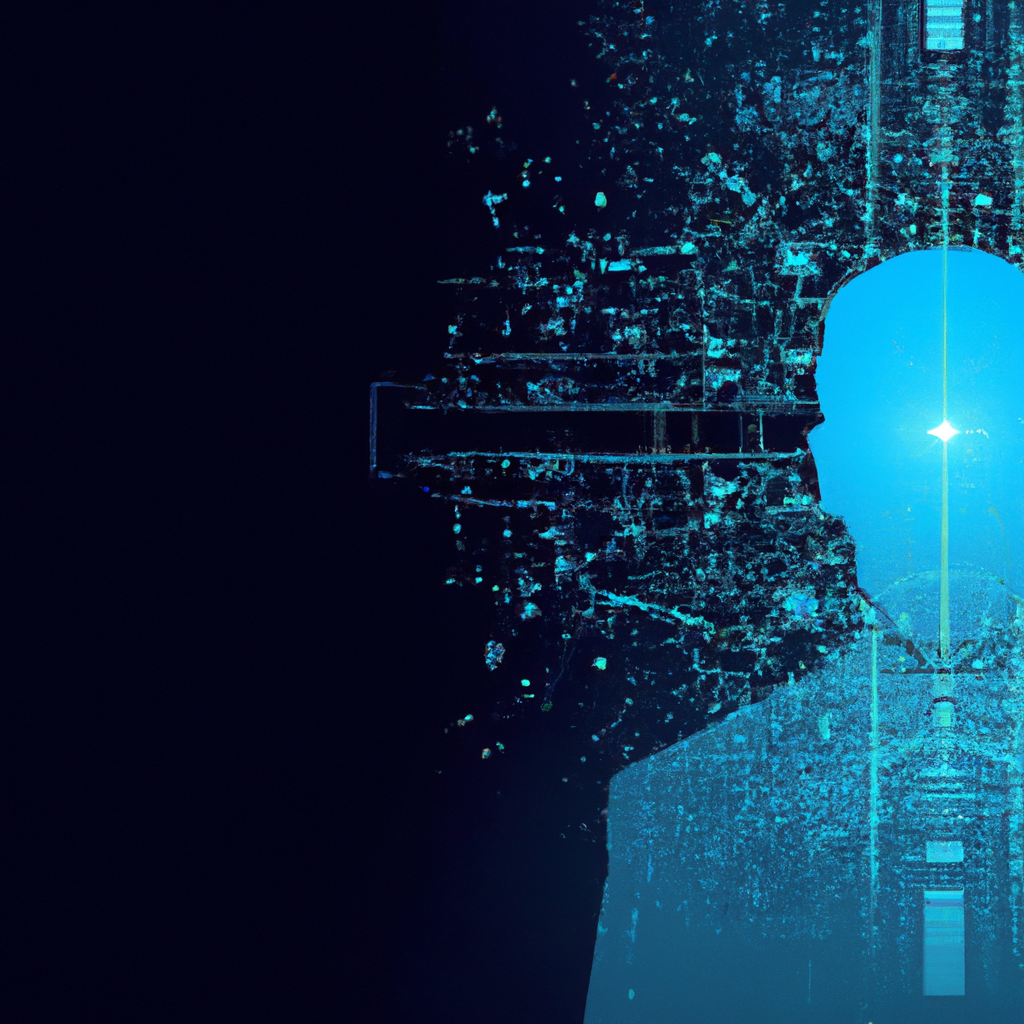So you’ve heard about AI and its potential to revolutionize countless industries, but what about its impact on marketing? Well, let’s dive right in and explore this intriguing topic. In this article, we’ll delve into the question of whether AI is good or bad for marketing, unpacking the various ways it’s already making its mark in the industry. From enhancing customer experiences to optimizing ad campaigns, AI has the potential to transform the way marketers connect with their target audience. So, fasten your seatbelts and get ready to embark on a fascinating journey through the ever-evolving landscape of AI in marketing.

The Definition of AI
Artificial Intelligence, commonly referred to as AI, is a field of computer science that focuses on the development of intelligent machines capable of performing tasks that typically require human intelligence. These intelligent machines are designed to learn, reason, and problem-solve, making them highly valuable in various industries, including marketing.
Understanding AI
AI is often categorized into two main types: narrow AI and general AI. Narrow AI, also known as weak AI, refers to AI systems that are designed to perform specific tasks with a high level of expertise but lack the ability to comprehend or perform tasks outside of their designated scope. On the other hand, general AI, also known as strong AI, refers to AI systems that possess the ability to understand, learn, and perform any intellectual task that a human being can do.
In the marketing industry, AI is primarily focused on narrow AI applications that can enhance and optimize various marketing processes.
Types of AI in Marketing
AI can be applied to marketing in several ways, including improved customer segmentation, enhanced personalization, efficient customer service, and optimized advertising campaigns.
The Role of AI in Marketing
Improved Customer Segmentation
AI technology enables marketers to segment their customers in a more sophisticated and accurate manner. By analyzing large volumes of data, AI algorithms can identify patterns and similarities among customers, allowing marketers to create targeted marketing campaigns tailored to the specific needs and preferences of different customer segments.
Enhanced Personalization
Personalization has become a crucial aspect of modern marketing. AI helps marketers collect and analyze vast amounts of data to create highly personalized experiences for customers. With AI-powered recommendation systems and content customization, marketers can deliver personalized messages, product suggestions, and offers that resonate with individual customers, thereby strengthening customer engagement and loyalty.
Efficient Customer Service
AI-powered chatbots and virtual assistants have revolutionized customer service in the marketing industry. These automated systems can handle basic customer inquiries, provide real-time assistance, and even process transactions. By automating customer service processes, businesses can provide round-the-clock support, improve response times, and enhance overall customer satisfaction.
Optimized Advertising Campaigns
AI algorithms can analyze consumer behavior, purchase history, and other relevant data to optimize advertising campaigns. By utilizing predictive analytics, AI can determine the most effective channels, content, and timing for advertisements, ensuring that marketing resources are efficiently allocated and maximizing the return on investment.

Applications of AI in Marketing
Chatbots and Virtual Assistants
Chatbots and virtual assistants are AI-powered tools that can communicate with customers, answer their queries, and provide personalized assistance. They can be implemented on websites, social media platforms, or messaging apps, allowing businesses to provide instant support and engage with customers in a more efficient and scalable manner.
Recommendation Systems
Recommendation systems utilize AI algorithms to analyze user preferences, previous interactions, and other relevant data in order to provide personalized product or content recommendations. By leveraging machine learning techniques, recommendation systems can continuously improve their accuracy and relevance, ultimately leading to higher conversion rates and customer satisfaction.
Automation of Marketing Processes
AI is being used to automate repetitive and time-consuming marketing tasks such as data analysis, lead generation, and social media scheduling. By automating these processes, marketers can focus on more strategic activities, make informed decisions based on AI-generated insights, and achieve greater efficiency in their overall marketing operations.
AI Analytics for Marketing
Data Collection and Analysis
AI allows marketers to collect and analyze vast amounts of data from multiple sources. This includes customer data, social media data, website analytics, and more. By leveraging AI-powered tools, marketers can extract valuable insights, identify trends, and make data-driven decisions to enhance their marketing strategies.
Predictive Analytics
Predictive analytics is a powerful application of AI in marketing. By analyzing historical data and patterns, AI algorithms can generate predictive models that forecast future trends, customer behavior, and market dynamics. This enables marketers to proactively adapt their strategies, optimize resource allocation, and stay ahead of the competition.
Behavioral Insights and Trend Predictions
AI algorithms can analyze individual customer behavior to identify patterns, preferences, and trends. By understanding customer behavior, marketers can tailor their marketing efforts to target specific segments and predict future trends. These behavioral insights can help businesses develop more effective marketing campaigns and anticipate customer needs before they arise.
Ethical Considerations in AI Marketing
Data Privacy and Security
The extensive use of AI in marketing relies on the collection and analysis of vast amounts of customer data. It is crucial for marketers to prioritize data privacy and ensure the security of customer information. Transparent data handling practices, robust security measures, and compliance with data protection regulations are vital to maintaining customer trust and confidence.
Transparency and Explainability
AI-powered algorithms can be complex, making it challenging to understand their decision-making processes. Marketers should prioritize transparency and develop AI systems that are explainable and understandable. Providing customers with clear explanations of how their data is used and how recommendations or decisions are made can build trust and mitigate concerns regarding AI technology.
Bias and Discrimination
AI algorithms are only as unbiased as the data they are trained on. It is essential for marketers to be aware of potential biases in their collected data and work towards eliminating any discriminatory outcomes or unfair practices. Regular audits, diverse training datasets, and ongoing monitoring can help mitigate bias and ensure ethical AI practices in marketing.
Challenges and Limitations of AI in Marketing
Initial Investment and Implementation
Implementing AI technology in marketing may require a significant initial investment. AI infrastructure, software, and training processes can be expensive and time-consuming. Moreover, integrating AI systems with existing marketing infrastructure and processes may pose technical challenges that need to be addressed. However, the long-term benefits of AI in marketing can outweigh the initial costs, enabling businesses to achieve greater efficiency and effectiveness.
Data Quality and Availability
AI algorithms heavily rely on the quality and availability of data. Inaccurate, incomplete, or biased data can result in unreliable insights and inaccurate predictions. Marketers need to ensure the quality and integrity of their data sources and invest in data cleansing and preprocessing techniques. Access to relevant and comprehensive data is essential for maximizing the potential of AI in marketing.
Lack of Human Touch
While AI can automate and optimize certain marketing tasks, it cannot replicate the human touch and creativity that is often crucial in marketing campaigns. Establishing personal connections, understanding complex emotions, and adapting to dynamic situations are aspects in which human marketers excel. It is important to strike a balance between AI-driven automation and the human touch to ensure effective marketing strategies.
Reputation and Trust
AI technology is still relatively new and unfamiliar to many consumers. Some may have concerns regarding their data privacy, the fairness of AI-driven decisions, or the potential loss of human interaction. Building and maintaining a positive reputation and establishing trust with customers is imperative. Marketers need to communicate the benefits of AI, address concerns, and be transparent about how AI is used to provide value to customers.
Future Trends and Innovations in AI Marketing
Artificial Intelligence in Voice Search
The rise of voice assistants and smart speakers has opened new opportunities for marketers. AI-powered voice search technology enables consumers to interact with devices using natural language, leading to changes in search behavior and SEO strategies. Marketers need to adapt their content and marketing strategies to optimize for voice search, ensuring their products and services are discoverable through this emerging medium.
AI-Powered Content Creation
AI is increasingly being used to generate and curate content. AI algorithms can analyze vast amounts of data and create personalized content tailored to specific target audiences. From automated copywriting to dynamic content generation, AI-powered content creation offers marketers the ability to scale and personalize their content efforts, saving time and effort while maintaining relevance.
Virtual Reality and Augmented Reality
AI-powered virtual reality (VR) and augmented reality (AR) technologies are gaining traction in marketing. VR and AR can create immersive experiences that allow consumers to interact with products or explore virtual spaces. Marketers can leverage AI to analyze customer preferences and behavior in these virtual environments, ultimately optimizing marketing strategies and enhancing user engagement.
AI and Social Media Marketing
Automated Social Media Management
Social media platforms generate vast amounts of data, making it an ideal domain for AI applications. AI-powered tools can automate tasks such as scheduling posts, analyzing performance metrics, and optimizing ad campaigns. This automation frees up time for marketers to focus on strategy and engagement, while ensuring consistent and timely social media presence.
Social Listening and Sentiment Analysis
AI algorithms can monitor and analyze social media conversations, providing valuable insights into consumer sentiment and trends. Social listening tools can identify brand mentions, track customer feedback, and detect emerging issues or opportunities. Leveraging AI-powered sentiment analysis, marketers can respond proactively to customer needs, manage brand reputation, and gain a competitive edge.
Influencer Marketing with AI
AI technology can assist marketers in identifying and engaging with suitable influencers for their brand. AI-powered platforms can analyze vast amounts of social media data to identify influencers who align with specific target audiences. By leveraging AI in influencer marketing, marketers can enhance the authenticity and relevance of their partnerships, ensuring optimal reach and engagement.
The Impact of AI on SEO
Algorithmic Updates and SEO Strategies
AI plays a significant role in search engine algorithms and updates. Search engines, such as Google, incorporate AI technology to understand user intent and deliver more relevant search results. Marketers need to stay updated with algorithmic changes and adapt their SEO strategies accordingly to maintain visibility and rankings in search engine results.
Voice Search and Natural Language Processing
The increasing popularity of voice search has profound implications for SEO. AI-powered natural language processing enables search engines to understand and respond to voice queries more accurately. Marketers should optimize their content to capture long-tail keywords and conversational language, aligning their SEO strategies with the evolving nature of voice search.
Automated Keyword Research
Keyword research is a fundamental aspect of SEO. AI-powered tools can automate the keyword research process by analyzing search trends, competition, and user behavior. This allows marketers to identify relevant keywords more efficiently and develop content strategies that align with user intent, ultimately improving organic search rankings and visibility.
Conclusion
AI has had a transformative impact on the marketing industry, enabling marketers to enhance customer segmentation, personalize experiences, automate processes, and gain valuable insights from data analysis. While AI presents numerous opportunities for marketers, it also poses ethical considerations and challenges. By prioritizing data privacy, transparency, and addressing potential biases, marketers can harness the power of AI ethically and responsibly. As AI continues to evolve, it is crucial for marketers to stay informed about emerging trends and innovations, adapting their strategies to leverage the full potential of AI in marketing.






